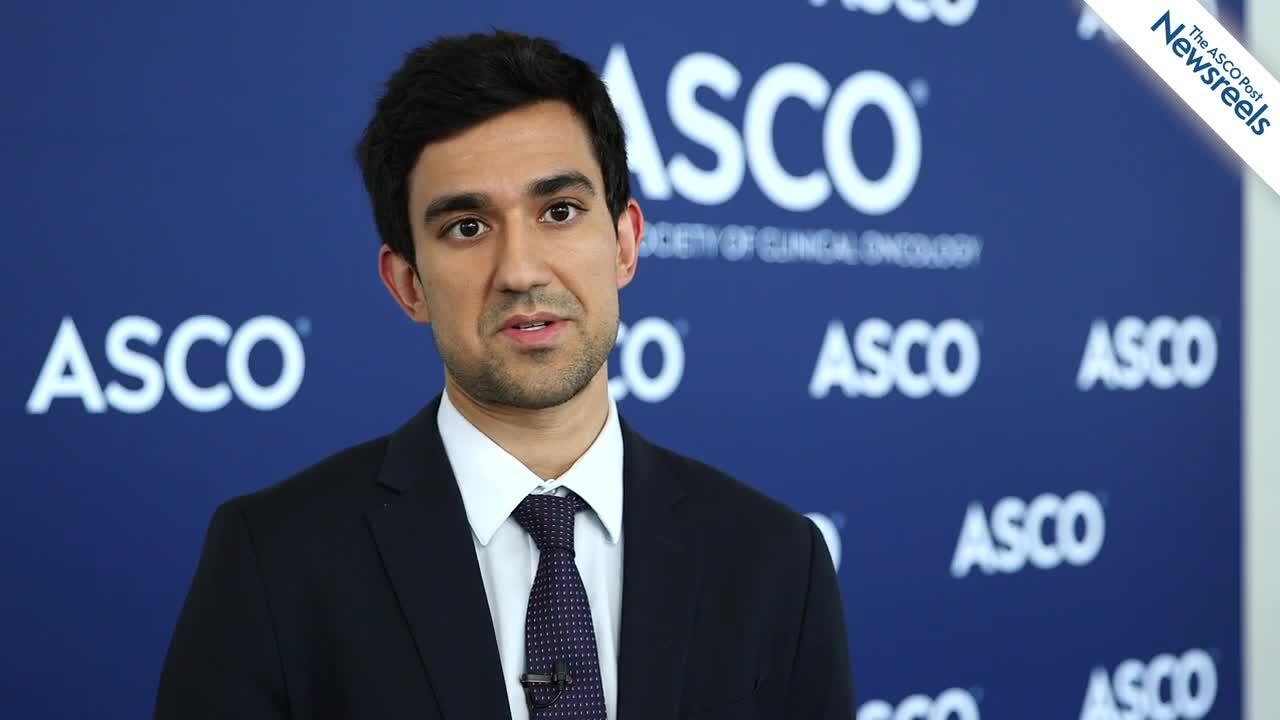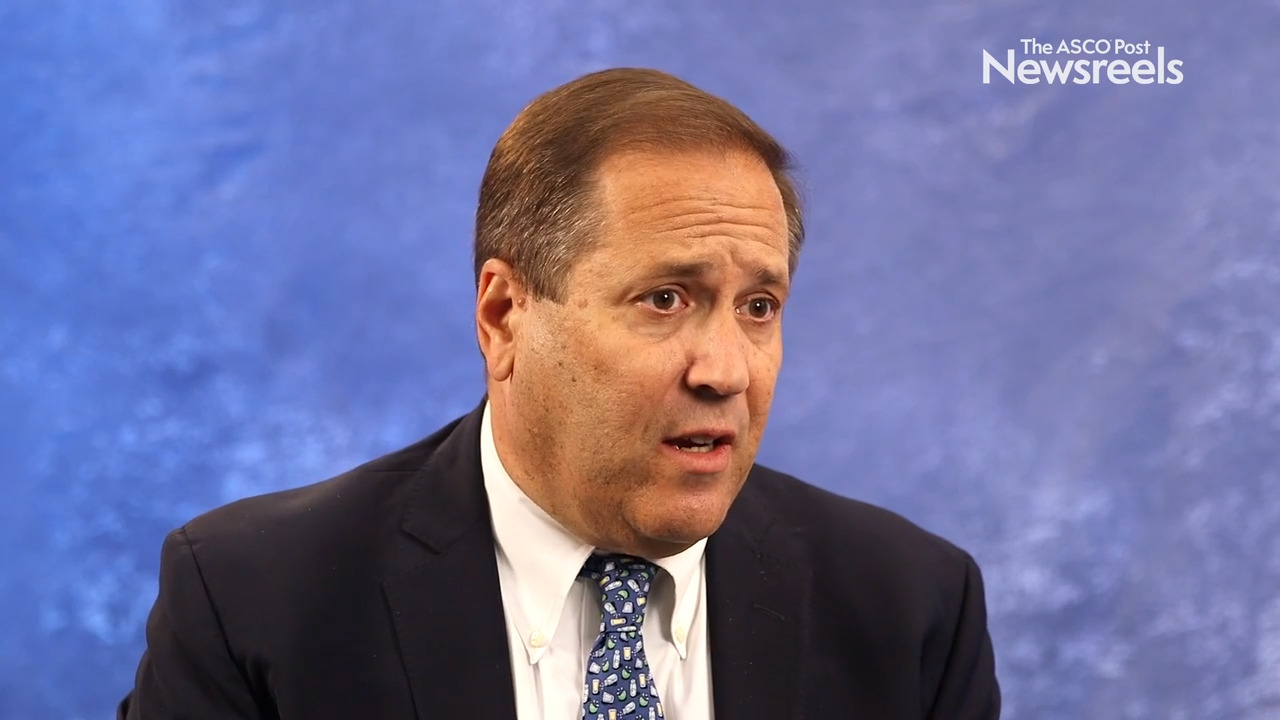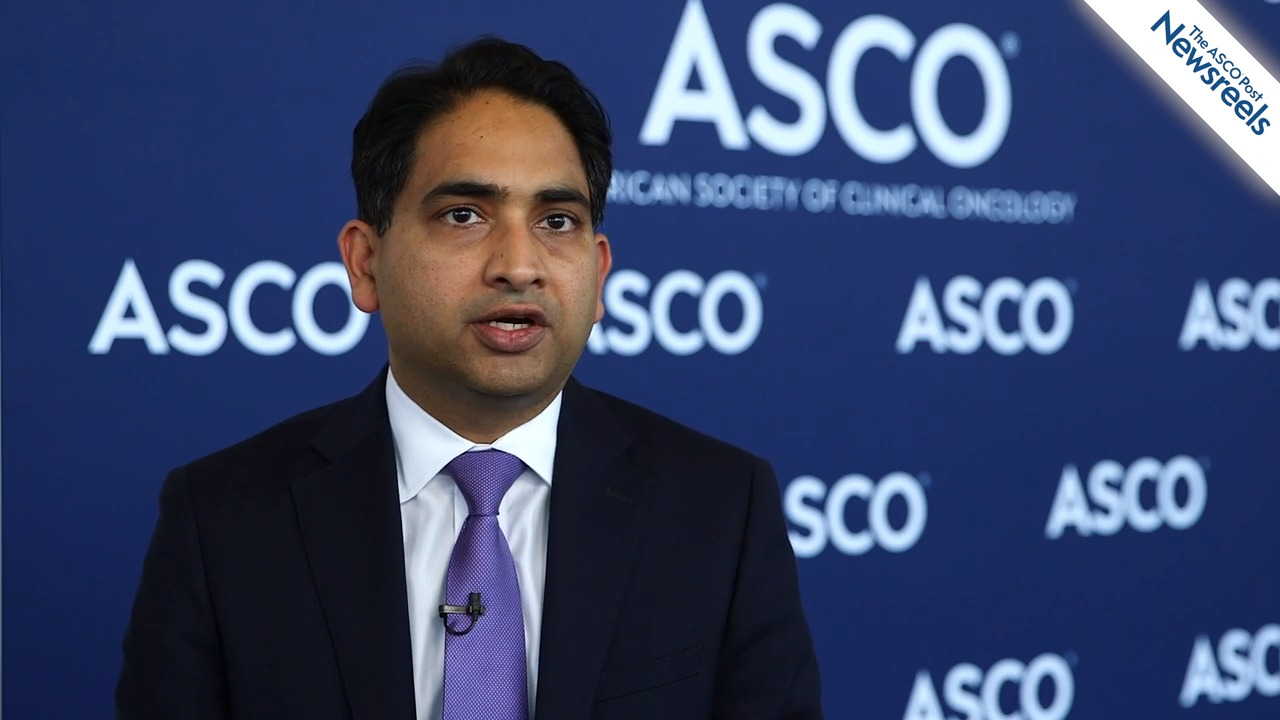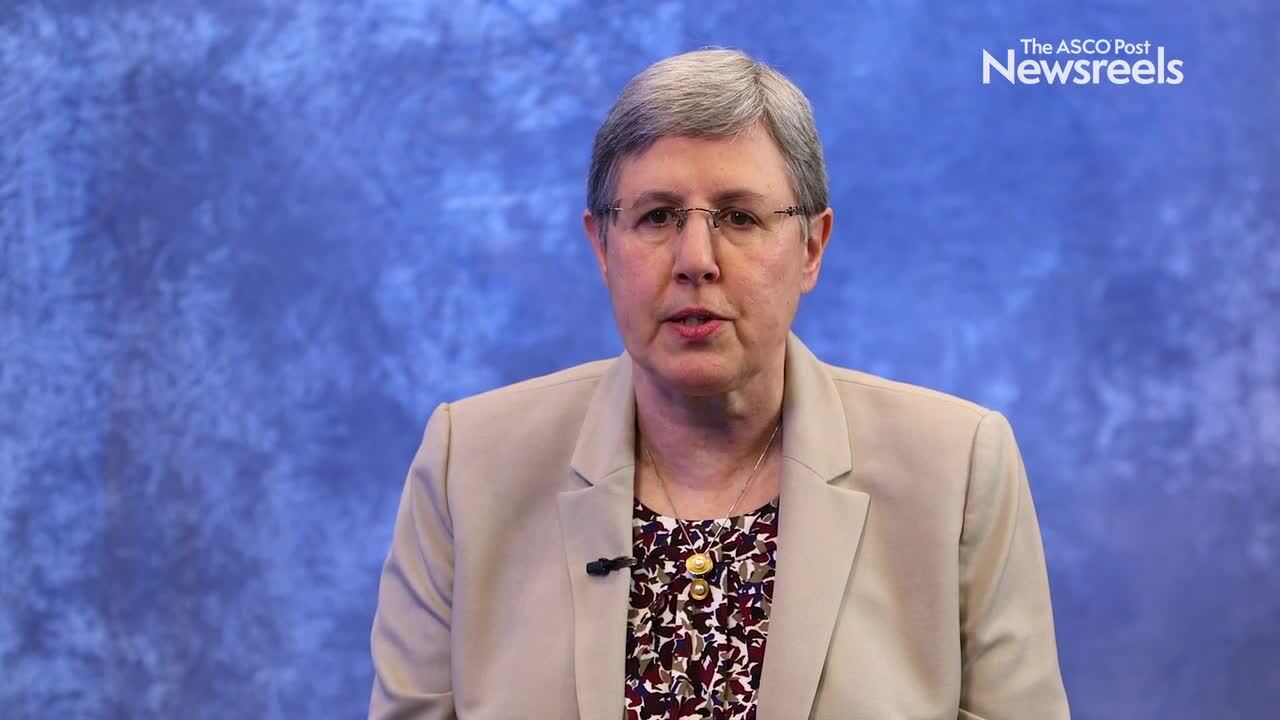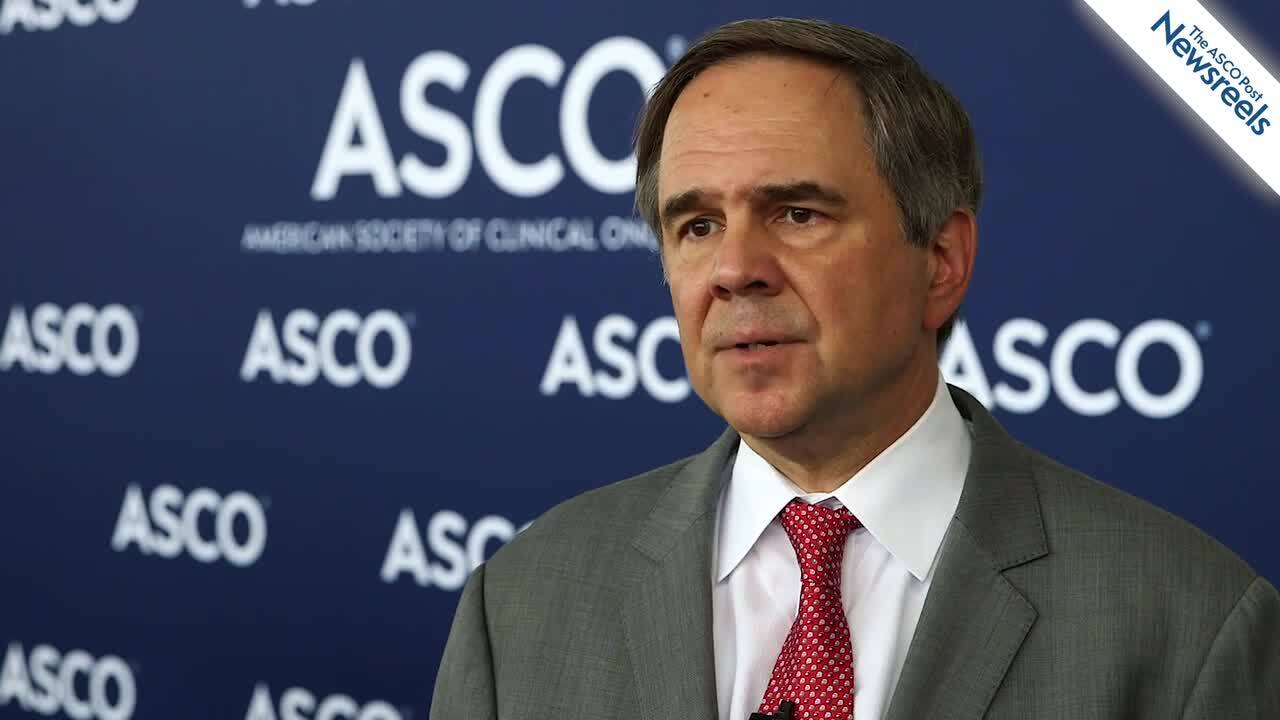Richard T. Penson, MD, and Don S. Dizon, MD, on Ovarian Cancer: SOLO3 Trial on Olaparib vs Chemotherapy in Relapsed Disease
2019 ASCO Annual Meeting
Don S. Dizon, MD, of the Lifespan Cancer Institute, and Richard T. Penson, MD, of Massachusetts General Hospital Cancer Center, discuss phase III study findings on the PARP inhibitor olaparib, which showed a significantly higher objective response rate vs nonplatinum chemotherapy for patients with ovarian cancer who relapsed, are platinum-sensitive, and have BRCA-mutant disease (Abstract 5506).
Kamran A. Ahmed, MD, of the H. Lee Moffitt Cancer Center and Research Institute, reports on a trial in progress that is investigating whether treatment with atezolizumab plus hypofractionated radiation therapy will improve the objective response rate compared with atezolizumab alone in patients with recurrent, persistent, or metastatic cervical cancer (Abstract TPS5596).
Adam Brufsky, MD, PhD, of Magee-Womens Hospital and the Hillman Cancer Center at the University of Pittsburgh Medical Center, discusses phase III study findings on neratinib plus capecitabine vs lapatinib plus capecitabine in patients previously treated for HER2-positive metastatic breast cancer (Abstract 1002).
Manmeet S. Ahluwalia, MD, of the Taussig Center Institute, Cleveland Clinic, discusses phase II findings on the efficacy and immunogenicity of SurVaxM, a novel cancer vaccine targeting the tumor-specific antigen survivin in newly diagnosed glioblastoma (Abstract 2016).
Amy J. Davidoff, PhD, of Yale University School of Public Health, discusses study findings on how expanding access to Medicaid through the Affordable Care Act (ACA) reduced racial disparities among patients with advanced cancer. Before the ACA was implemented in 2014, black patients with cancer were less likely than white patients to receive timely treatment, but in states that did not adopt Medicaid expansion, racial disparities persist (Abstract LBA1).
Daniel P. Petrylak, MD, of Yale School of Medicine, discusses study results on enfortumab vedotin monotherapy for locally advanced or metastatic urothelial cancer previously treated with platinum and immune checkpoint inhibitors (Abstract LBA4505).
